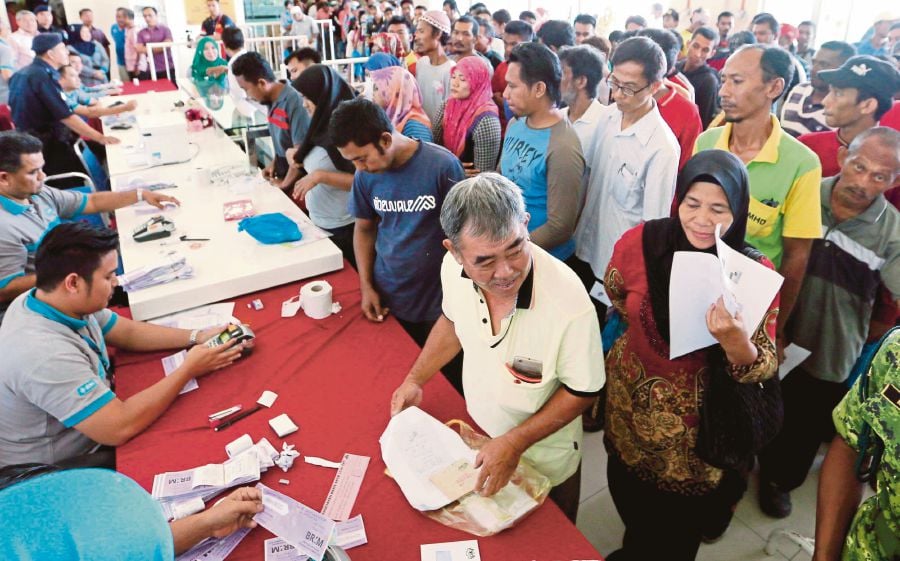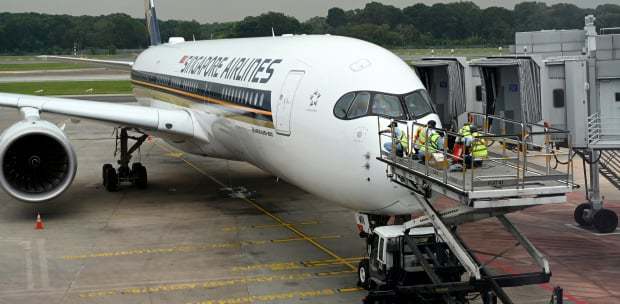IT is effectively a pre-election “state of the economy” report card. The commendations are implicit — “Malaysians have never had it so good” and “Steady as she goes”. All this towards achieving that coveted goal of high-income nation (HIN) status as defined by the World Bank by 2020.
With Malaysia’s 14th general election a few weeks away, the unveiling last Friday by Prime Minister Datuk Seri Najib Razak of the latest National Transformation Programme 2017 annual report, could not have been more relevant. NTP 2017 is a continuum of what international agencies such as the International Monetary Fund (IMF) and World Bank have been saying of the government’s management of the economy and development goals.
The recent IMF Article IV Consultation stressed that Malaysia’s economic fundamentals remain strong and surpassed expectations. The strong real gross domestic product growth, estimated at 5.8 per cent for 2017 driven largely by domestic demand, pleasantly surprised the executive directors of the fund. Inflation is under control and projected to decline to 3.2 per cent this year. The ultimate plaudit is that “Malaysia’s economy is getting closer to achieving high-income status”, with the usual caveats of increasing government revenues, cutting expenditure and investing in social capital, especially the female labour force.
The timing of NTP 2017 is irrelevant — it would have been published irrespective of whether 2018 was an election year or not. Yet, its provisions and conclusions are coincidental and largely convergent with those of the gatekeepers of the global economy, especially the IMF.
The key takeaways of NTP 2017 are the achievements of Malaysia’s march towards HIN status including managing the nation’s finances, boosting its economy through stimulating GDP growth and containing government debt, generating employment, raising living standards and fighting corruption.
Malaysia is no longer stuck in the middle-income trap and its Gross National Income (GNI) per capita of US$9,660 (RM37,800) is only US$2,427 shy of the World Bank’s high-income status threshold of US$12,087.
Its fiscal deficit has declined from 6.7 per cent in 2009 to 3 per cent in 2017, and it attracted RM1.8 trillion of investments in 2017 surpassing the initial NTP target of RM1.4 trillion, of which 68 per cent was accounted for by private investments in 2017. The Barisan Nasional government also created 2.68 million additional jobs in the last seven years. GDP growth of 5.9 per cent is exceeding all projections and suggests that the economy is over-achieving.
The ratio of public debt to GDP is 51 per cent, albeit below the government’s self-imposed debt ceiling of 55 per cent, but still slightly higher than some peer economies. The above economic indicators would be meaningless if their impact is not translated into the two defining key performance indicators (KPIs) in a modern democracy — raising the living standards of ordinary citizens and fighting corruption.
Raising living standards is a challenge for any economy, irrespective of national wealth and HIN status.
According to the World Bank, inequality between the rich and poor, and very rich and middle classes has grown dramatically. Not surprisingly, the IMF has warned that inequality is one of the greatest threats facing humanity.
The above challenge is implicit in NTP 2017. Malaysia’s poverty rate has declined from 4 per cent in 2009 to 0.4 per cent in 2016, and mean monthly household income has increased from RM4,025 to RM6,958 for the same period. But, achieving a balance between raising living standards and rising cost of living is testing for any economy. Governments, short of subsidising everything, can only intervene up to a point, because cost of living is often governed by external factors such as commodity prices, currency volatility, political instability, etc.
Malaysia is rightly increasing its minimum wage, especially to boost the median monthly income of the B40 group to RM3,000. A social indicator that could help Malaysia over the HIN finishing line would be the eventual introduction of a living wage, which admittedly most HIN countries do not have. If Najib can achieve this would be a unique moral victory for BN.
BN’s stated policy is to have in-built measures aimed at lifting Malaysians out of the B40 income group up the social mobility ladder. But, it cannot ignore the M40 income group, which usually forms the backbone of a free market economy. Fighting corruption nowadays is a given in any polity. While Malaysia’s enforcement is second to none in almost all sectors, more can be done.
BN’s introduction of a Political Financing Bill is aimed at “ensuring greater commitment to uphold integrity in the political system”. The fact that Malaysia is ranked 62nd out of 176 countries in the Transparency International’s Corruption Perception Index 2017, suggests that there is room for improvement.
NTP 2017 to me is a “vision of the eminently achievable” and a testament of hope for the future of the current and next generation of Malaysians. Amidst an opposition largely in disarray, NTP 2017 suggests that Malaysia is verily on the right growth and governance trajectory.
Mushtak Parker is an independent London-based economist and writer. He can be reached via [email protected]






